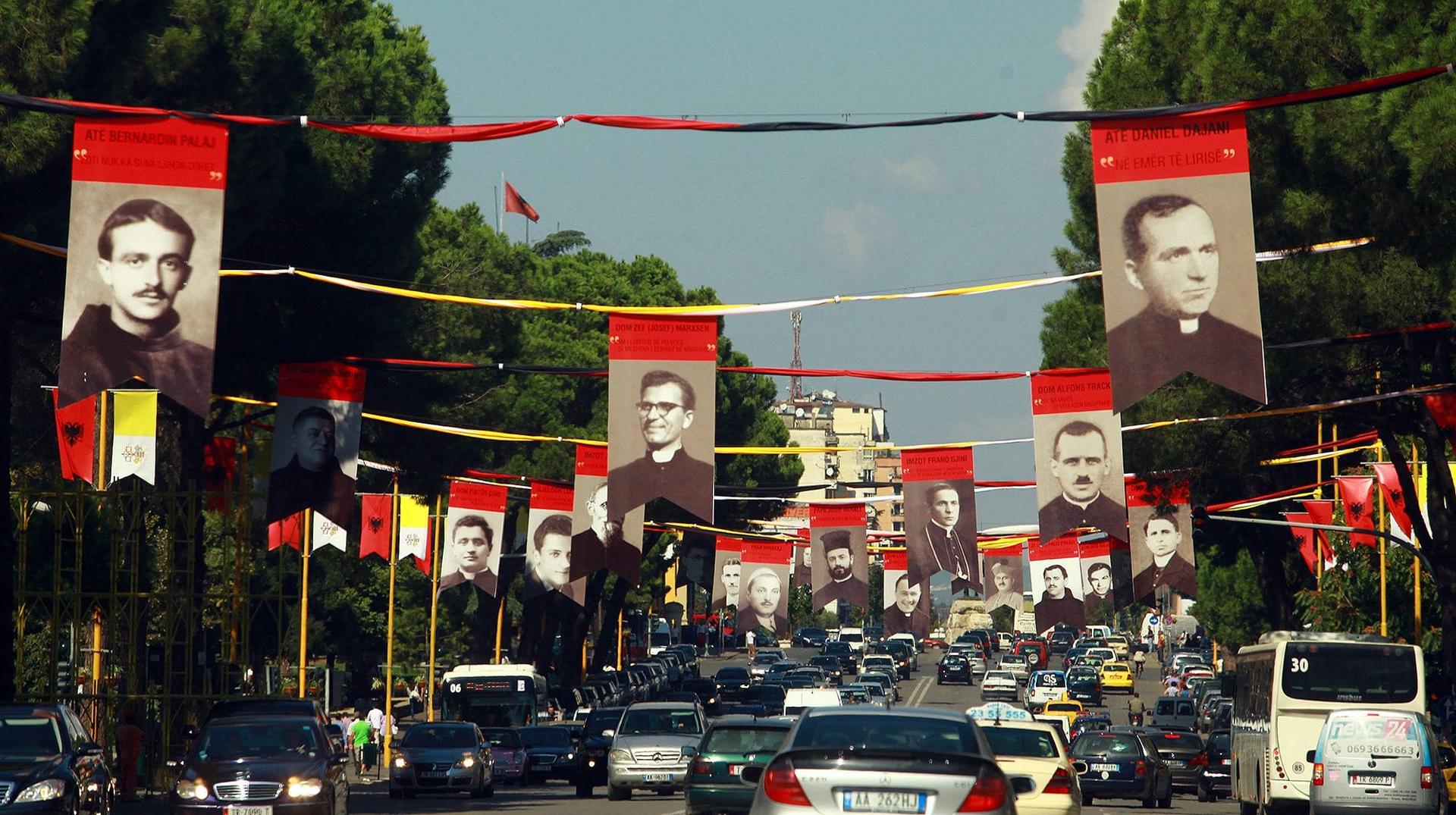ROME – A new nationwide poll on American Catholic attitudes towards the persecution of Christians around the world reveals a relatively strong grasp of the situation, a mixed response in terms of how big a priority it ought to be, and either confusion or dissatisfaction about how Church leaders are responding.
Forty percent of U.S. Catholics believe that anti-Christian persecution is “severe,” according to the results, and 51 percent say it’s “somewhat severe.” That certainly tracks with reality, given that estimates suggest that some 200 million Christians around the world today are exposed to threats of persecution, harassment, injury, arrest, torture and even death on the basis of their religious identity.
Although attempts to fix the number of new Christian martyrs every year vary widely, in part because it’s often difficult to get boots on the ground in the places where the killing is happening, and in part because victims often die anonymously and unrecorded, the range is somewhere between one new martyr every five minutes and one every hour.
In addition, presented with a list of sixteen nations and asked to rank the severity of anti-Christian persecution in those places, American Catholics more or less nailed it, identifying North Korea, Iran, Iraq, Syria and Pakistan as the worst offenders.
(It’s telling, however, that aside from North Korea, all the other choices were majority Muslim states. Yet being a Christian these days is no cakewalk either in China, Nigeria, and India, other options in the set.)
On the other hand, the results also reveal a relatively low level of urgency among American Catholics about coming to the aid of persecuted Christians. Asked to choose in terms of level of concern among five issues – human trafficking, poverty, climate change, the refugee crisis, and anti-Christian persecution – the persecution of Christians finished last.
(As a side note, one wonders if perhaps the language of the survey was a factor. For some reason, the authors refer to “Christian persecution,” which makes it ambiguous whether we’re talking about persecution of, or by, Christians. For clarity’s sake, saying “anti-Christian persecution” usually avoids the problem.)
Where many American Catholics seem a bit confused is what, exactly, the Church is doing on the issue.
While almost half of U.S. Catholics say that Pope Francis is “very engaged” on anti-Christian persecution, only 27 percent say the same thing about their local bishop, and only 24 percent report that their parish is very involved. In terms of the middle range, 39 percent say their bishop is “somewhat involved,” and 42 percent say that of their parish.
Some 13 percent of American Catholics say their local bishop is “not engaged,” and 17 percent say the same thing of their local parish. Perhaps most worrying, some 21 percent say they just don’t know what their bishop is doing on anti-Christian persecution, and 18 percent say that of their parish as well.
Overall, that’s 34 percent of American Catholics who believe their bishop isn’t doing anything on anti-Christian persecution, or, if he is, they don’t know about it, and 35 percent for whom the same thing is true about their parish – in both cases, above one-third of the total Catholic population.
The poll was commissioned by the U.S. branch of Aid to the Church in Need, a papal foundation supporting suffering and persecuted Christians around the world. It was conducted online Jan. 16-24, 2018, claiming a margin of error of 3.1 percent.
“What the survey reveals quite clearly,” said George Marlin, chairman of Aid to the Church in the U.S., “is that there is a need to increase the engagement level of the U.S. Catholic Church when it comes to global Christian persecution — both at the grassroots and leadership levels. The issue has to become a priority.”
“What we hope our poll will do is show the bishops and their priests that the laity need more education and leadership to give them a stronger sense of the seriousness and pervasiveness of Christian persecution around the world. We have an obligation to raise our voice and stand up for persecuted Christians,” Marlin concluded.
Of course, there are ways to explain the perceived lack of clear leadership at the diocesan and local levels other than mere neglect.
For one thing, we live in a time when leaders at the top of any system draw far more attention than those in the middle or at the bottom – most Americans could correctly identify their president, for instance, but not necessarily their member of congress or city council representative.
Similarly, anything Francis says or does will generate far more buzz than a diocesan bishop, no matter how much of a dynamo he may be.
Further, a general lack of media interest in anti-Christian persecution may account at least as much, if not more, for the fact that U.S. Catholics report not being as concerned about it as other issues they’re hearing from the pulpit on Sundays.
On the other hand, the survey may nevertheless be a useful reminder that if the Catholic population in America is going to be roused to engage the suffering of their brothers and sisters in faith around the world, they’ll likely need to hear that message loudly, clearly and repeatedly from their leaders – and, at least to date, evidence would suggest that’s not always happening.
Even though the poll results have been released, people can still participate in the survey, which will help Aid to the Church in Need to add more pieces to the picture. I’d like to invite Crux readers to do so here.















